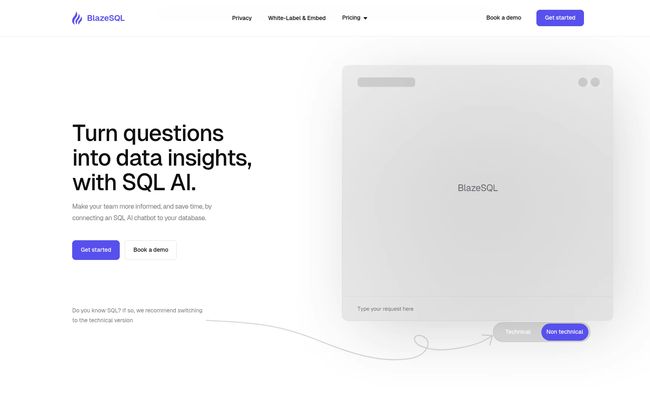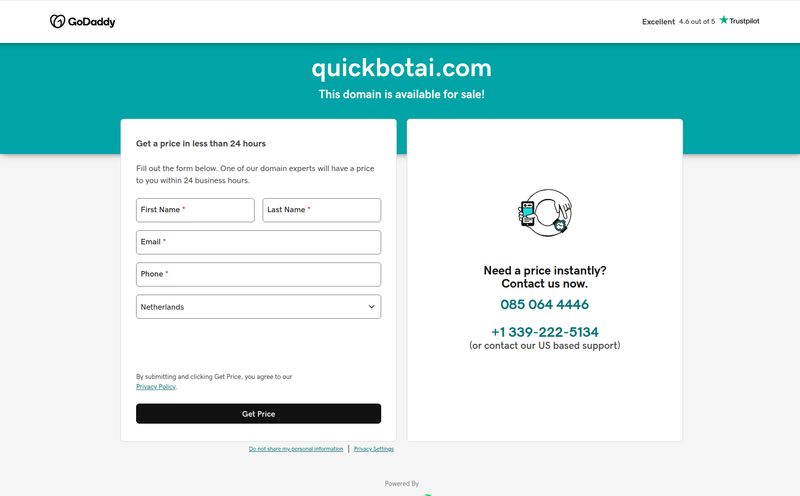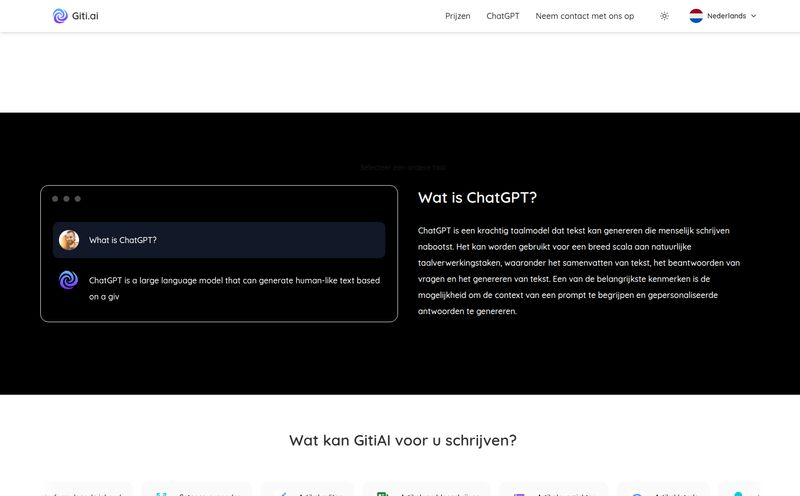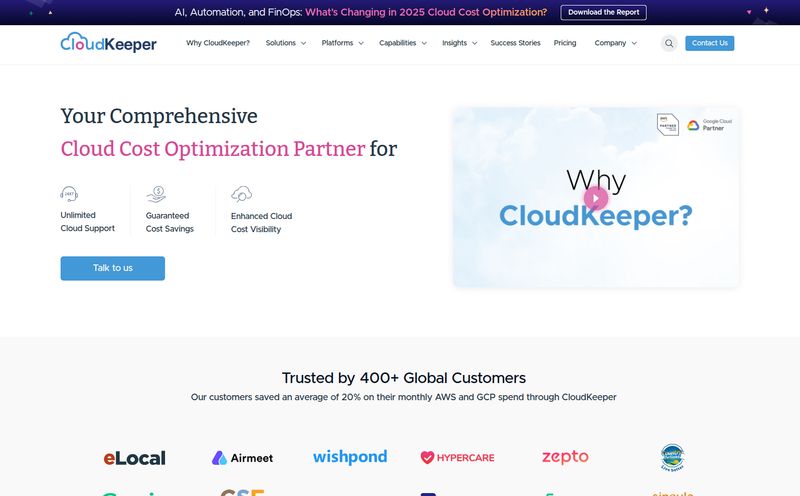We’ve all been there. You have a burning question. You know the answer is lurking somewhere in your company’s database, like a secret hidden in a digital vault. But to get it, you have to write a ticket, wait in a queue, and try to explain to a very busy engineer exactly what you need. By the time you get the data, your question has already had three birthdays.
It’s the classic data bottleneck. A frustrating reality for marketers, product managers, and anyone who isn't fluent in the arcane language of SQL.
For years, we've been promised tools that would democratize data. Some were okay, most were clunky. But recently, I've been playing around with a tool called Blaze SQL, and... well, it feels different. It’s one of those things that makes you go, “Oh, so this is what the future feels like.”
So, What on Earth is Blaze SQL AI?
In the simplest terms, Blaze SQL is an AI data analyst in a box. Think of it like ChatGPT, but instead of writing poems or emails, it's laser-focused on your company's database. You connect it to your SQL database, and then you can just... talk to it. You ask questions in plain, normal English, and it translates them into complex SQL queries, runs them, and spits back the answer. Sometimes, it even gives you a nice little chart to go with it.
It’s designed to slash the time it takes to go from a question to an insight. No more waiting. No more bottlenecks. Just you and the data, having a nice little chat.

Visit Blaze SQL
Who Is This Tool Actually For?
I can see some of my developer friends scoffing right now. “I can write my own SQL, thank you very much.” And that’s fair! This tool probably isn’t for the seasoned data engineer who dreams in joins and subqueries.
This is for the rest of us. The “data-curious.” The marketing manager who needs to know which campaign drove the most sign-ups last Tuesday. The startup founder who wants to see user churn by cohort without hiring a data scientist on day one. It's for teams that want to move faster and make decisions based on actual evidence rather than gut feelings.
I’ve always been a huge advocate for putting data power into the hands of the people who are actually on the front lines, and Blaze SQL seems to share that philosophy. It's about empowerment. It’s about letting people get answers themselves.
My Favorite Features (The Stuff That Actually Moves the Needle)
A lot of AI tools are just fancy wrappers around an API. But Blaze SQL has some genuinely thoughtful features built in.
The AI SQL Generator: It's like a translator for geeks
This is the core magic trick. You ask, “What were our top 10 selling products in the UK last month?” and behind the scenes, the AI writes the `SELECT product_name, SUM(sales) FROM orders WHERE region = 'UK' AND sale_date >= '...'` code for you. It’s scarily good. As Thibaut Nguyen, the CTO at Poppy Mobility, put it, it helps find insights “that is not so obvious to every data analyst.” It’s not just about getting the simple answers; it's about uncovering the stuff you didn’t even know to look for.
Connecting Your Data: But is it Safe?
Okay, this was my first question. I'm not about to plug some random app into our main database. The folks at Blaze seem to get this. They offer a desktop version that allows for private, secure database connections, and everything I've seen points to a strong focus on security. You connect your database, and it ingests the schema—the structure of your data, not the data itself—so the AI knows what's what. It’s a smart approach that should calm the nerves of any IT department.
From Raw Data to Pretty Pictures: Dashboards and Visuals
Getting a table of numbers is one thing. Being able to instantly turn it into a bar chart or a line graph is another. Blaze SQL includes data visualization and dashboard creation tools. This is huge for collaboration. You can find an insight, visualize it, and drop it into a shared team dashboard in minutes. This closes the loop, turning a personal query into a shared piece of team intelligence. No more exporting CSVs and wrestling with Excel.
The Elephant in the Room: Blaze SQL Pricing
Alright, let's talk money. This isn't a free-for-all ChatGPT clone. It’s a professional tool, and it has a professional price tag. I appreciate that they’re transparent about it, which is more than I can say for some SaaS companies.
Here’s a quick breakdown of their team plans:
| Plan | Price | Key Details |
|---|---|---|
| Blaze Team | $249 /month | Includes 3 users, $49 per extra user. Comes with AI Data Analysis and shared environments. |
| Blaze Team Advanced | $499 /month | Includes 3 users, $75 per extra user. Adds advanced analytics and priority support. |
| Blaze Enterprise | Custom | Dedicated support, private cloud, and all the bells and whistles. |
Is it cheap? No. But you have to frame it against the cost of the alternative. How much does an hour of a developer's time cost? How much is a delayed business decision worth? If this tool saves your team even 5-10 hours a month, it pretty much pays for itself. For a small, agile team, that $249 could be one of the best investments they make.
The Not-So-Perfect Parts (Let's Be Honest)
No tool is a silver bullet, and I wouldn't be giving you an honest review if I didn't mention the potential hiccups. The AI is powerful, but it's not omniscient. If you have an incredibly complex database schema and you ask a poorly worded, ambiguous question, you might get a weird or incorrect answer. Garbage in, garbage out still applies.
You also have to do the initial work of providing the database schema information. It's not a huge lift, but it's a necessary step for the AI to understand your unique data landscape. This isn’t a magic wand you wave and it instantly knows everything about your business; it's a powerful engine that you need to give a map to.
Final Thoughts: Is Blaze SQL AI Worth the Hype?
After spending some time with it, I'm genuinely optimistic. Is it going to replace data scientists? No, of course not. But it is going to make them more efficient and, more importantly, it's going to make everyone else more data-literate.
It’s a powerful step toward a future where anyone in a company can answer their own questions, test their own hypotheses, and bring evidence to the table. It turns data analysis from a priestly, gated function into a conversational, accessible tool. And in my book, that's not just a cool feature—it's a revolution.
If you're on a non-technical team that constantly feels blocked by data access, you should seriously give their 14-day trial a look. It might just be the thing that finally breaks the bottleneck.
Blaze SQL AI FAQs
- Is Blaze SQL hard to set up?
- From what I've seen, the process is designed to be straightforward. The main step is connecting it to your database and letting it understand your data's schema. You don't need to be a developer to do it, but you might need your database credentials handy.
- How accurate is the AI at writing SQL?
- It's very accurate for most standard business queries. Where it might struggle is with extremely complex, multi-layered questions or poorly structured databases. For the 90% of day-to-day questions, it seems to be spot-on.
- Can I share dashboards and insights with my team?
- Yes, absolutely. Both the Blaze Team and Team Advanced plans are built around shared environments and team collaboration, which includes creating and sharing dashboards.
- What's the main difference between the Team and Team Advanced plans?
- The Team Advanced plan, for $499/month, adds features like Advanced Analytics (allowing the AI to run on-the-fly Python code) and gives you priority support. The standard Team plan at $249/month covers the core AI data analysis and collaboration features.
- Is there a free trial I can use to test it?
- Yes, the Blaze Team plan offers a 14-day free trial, so you can connect your data and see if it works for your team before committing any money.
- What kind of databases does it support?
- The platform is built for SQL databases. This generally includes the most popular ones like PostgreSQL, MySQL, SQL Server, Redshift, and Snowflake. It's always best to check their latest documentation for a specific list.



